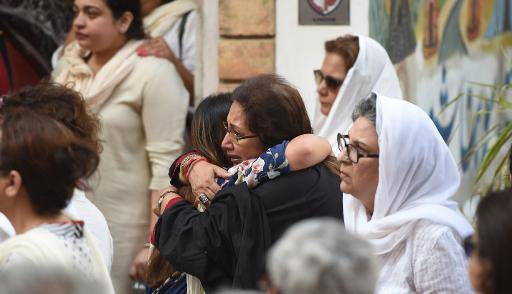When I first read an Urdu narrative Murda Badaste Zinda by Farhat Ullah Baig in school, it haunted me. The narrative was an insight to everything that happens at today’s funerals. From the relatives who don’t care at all to the people who are only there to give suggestions or even for the sake of latest tittle-tattles, the narrative stated it all.
I hoped for it to be an exaggeration because it was too cruel (more like sadistic) to be a reality but when I recently lost a family member, it all finally made sense. Probably juvenile to say this but yes, my grandfather’s death did change my perspective of this acquisitive world.
It was a sudden death and all the family members were traumatized. Imagine living with someone for as long as you can remember and then within a few minutes, they are just not there anymore. Considering how grandparents have a significant bond with their grandchildren, if you lose one, you would probably think about how you went to them for eidi at every Eid or how you used to hide under their bed or tease them until they gave you candies. Trying to accept the laws of nature, you would think about how desolate your house is going to feel like now. You might also just regret not spending enough time with them.
As you mourn, people are only going to make it worse. At the funeral, several people asked me about what room I live in, what school I go to, what grades do I get etc. All without thinking about what my grief-stricken family members or I felt. As I sat, weeping near his dead body, I could hear my neighbors taking about the new metro trains and road conditions. I could hear people chattering out loud on calls. I could hear people giggle. I could hear people from different sects giving different opinions about how to tie the kaffan. People were interested more about whether saas-bahu politics exists in my house or not than in asking us about how we felt. More gossips were made than prayers for the one who left us all. If you have attended a funeral, you must know it all.
Be it you, me or anyone else, just as the narrative said, most of the people at a funeral are there to fulfil a mere formality of our mundane society. They don’t learn a thing. They don’t begin ruminating on the laws of nature. They don’t start fearing their life after death, they don’t ponder over the fact that they are not immortal and instead they are still tirelessly talking about worldly stuff which won’t mean anything at a point. Not only this, but such an event is also going to reveal those who are unfeigned to you versus those who always wore a mask.
People who aren’t expected show up and many of those who are expected don’t. There are infinite calls, fake concerns and several apologies for not showing up that are ruined by unnecessary excuses. From Qul to Jumairaatain and from Quran Khanis to Chaliswey, at every religious event that follows up, (which is more of a social thing than religious, sadly), the close family members grieve while others come prepared with a dozen of questions, to make everything unendurable for you. And as everyone leaves, there start the gilleh shikwey about who could have showed up but didn’t or who left early before the final prayer.
At that moment, you will feel two things: the excruciating pain of losing a loved one and the endless ecstasy, knowing that your loved one is better off away from this materialistic world.
P.S. The Urdu narrative Murda Badaste Zinda by Farhat Ullah Baig is a must read for all those who find the post somewhat veracious






